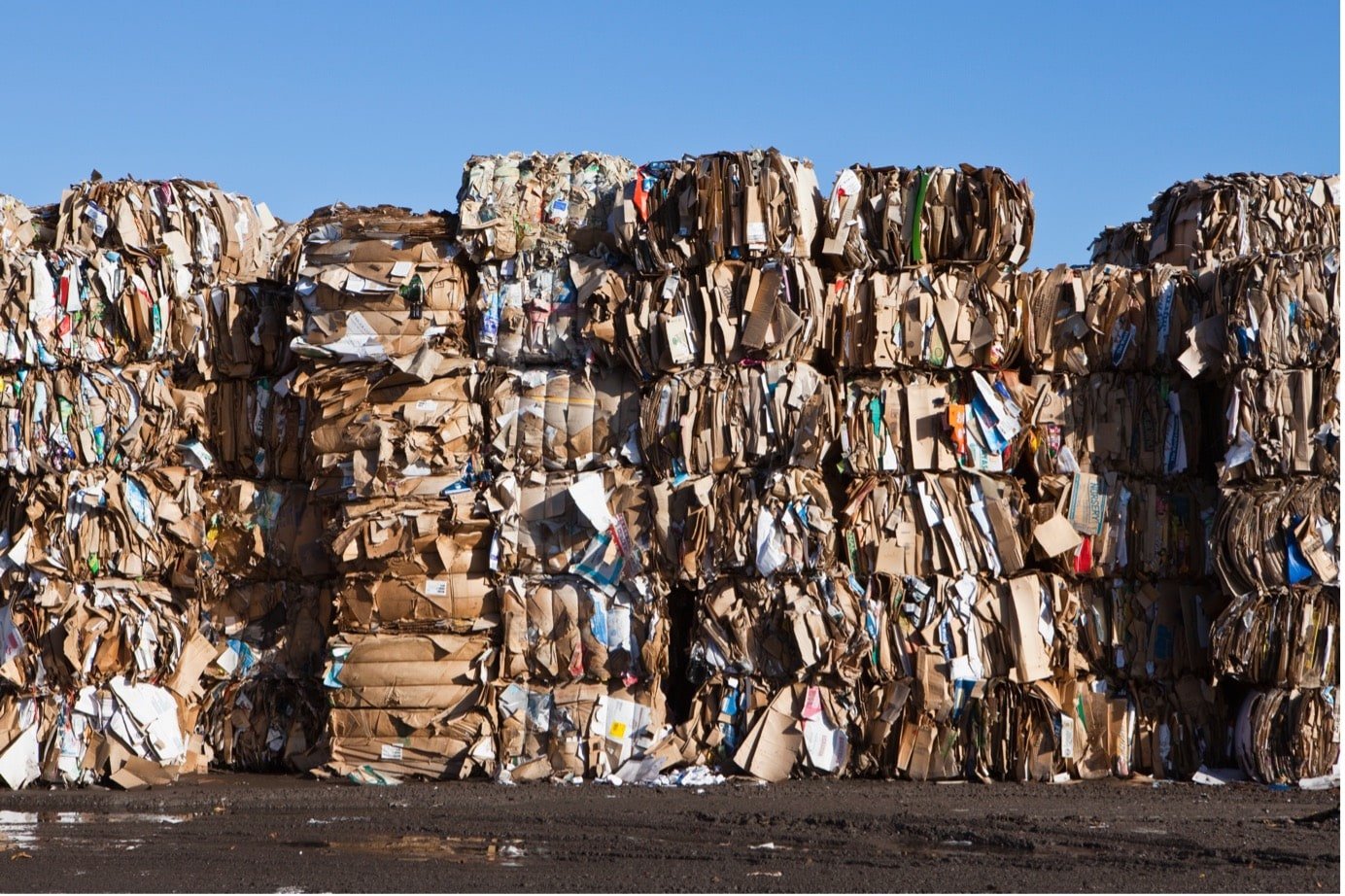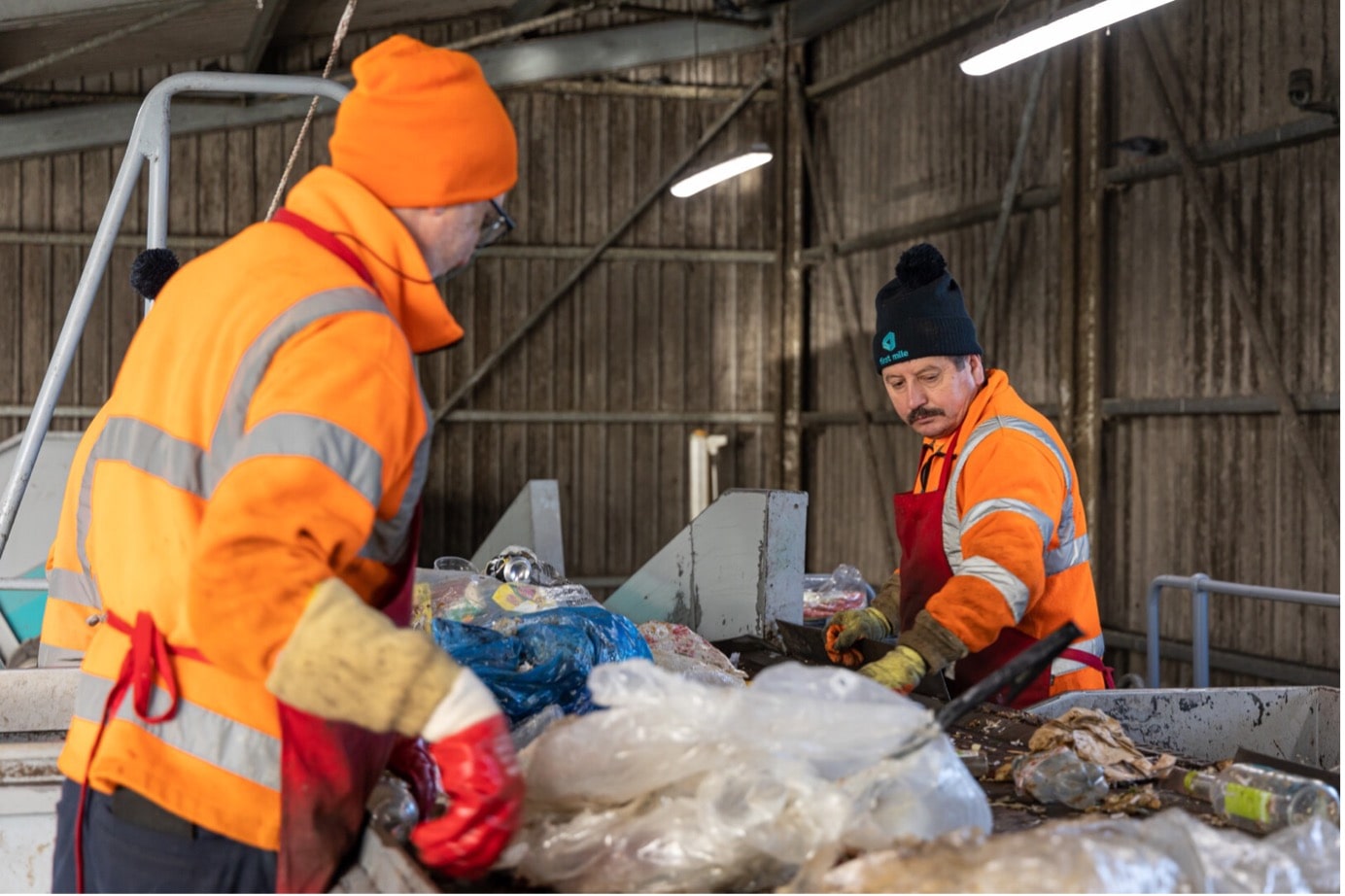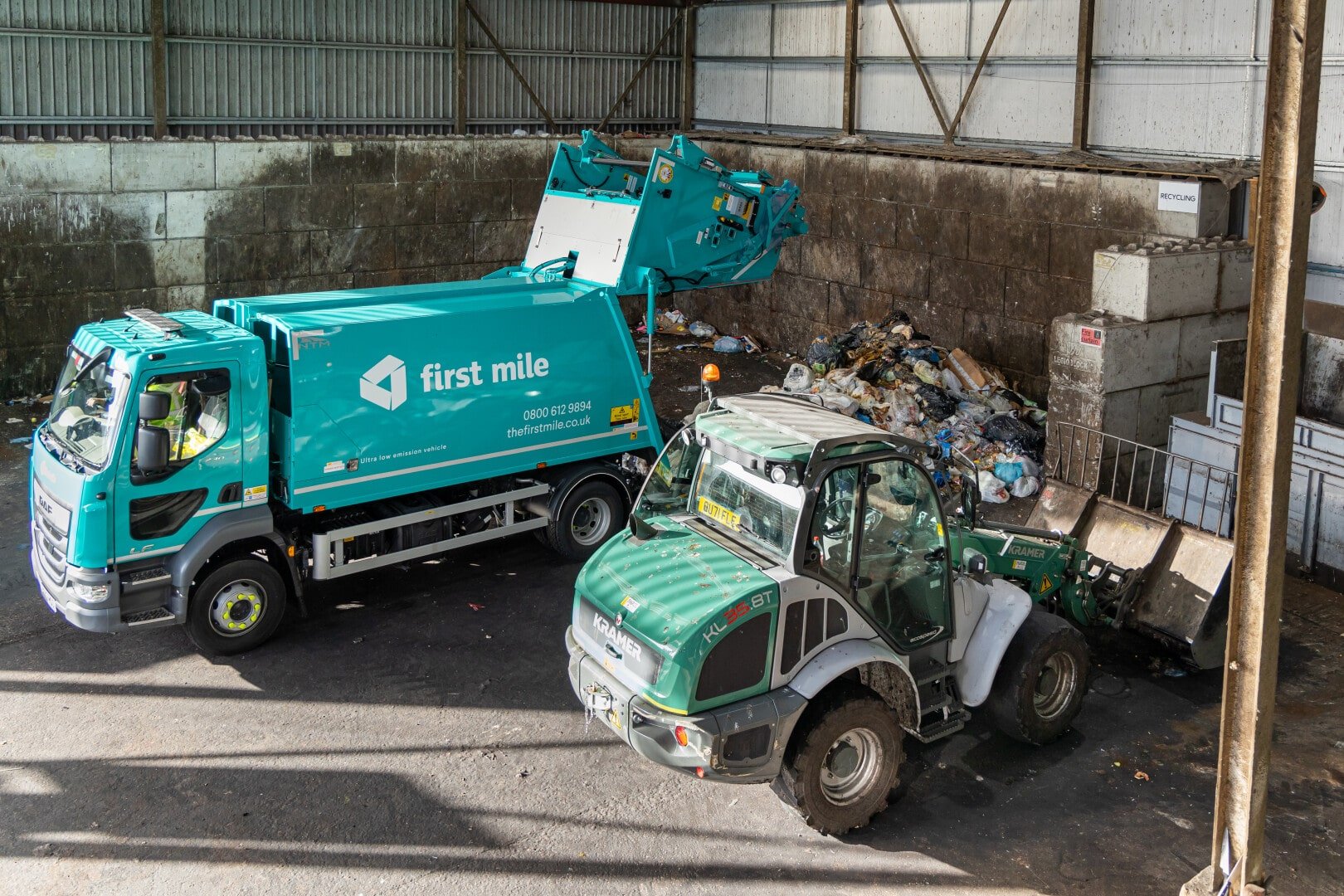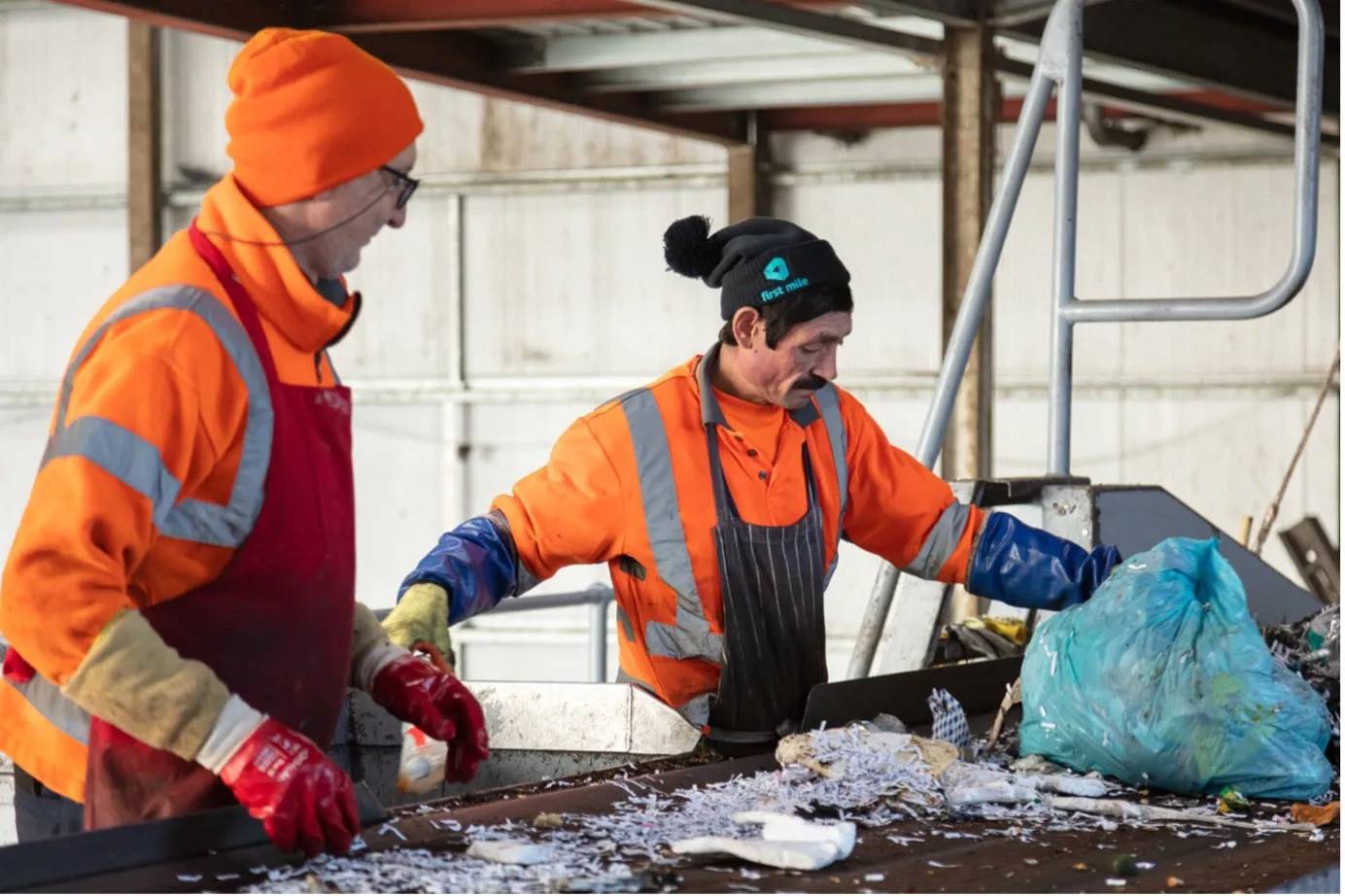In today's eco-conscious world, recycling has assumed a paramount role in minimising the environmental footprint.
At First Mile, we're dedicated to making a positive impact on our environment. At the heart of responsible recycling lies the concept of 'End of Waste' (EOW) classification.
Recycled materials as global commodities
Recycled materials have emerged as a global commodity, marking a significant stride towards sustainability.
Recycling not only conserves precious natural resources but also curtails energy consumption and greenhouse gas emissions.
It's a double win, benefitting the environment and the economy. For instance, materials like cardboard are routinely shipped to nations like Vietnam for recycling, spotlighting the global nature of the recycling domain.
Exporting materials, but with the End of Waste classification:
Exporting recycled materials is commonplace, but there's a crucial stipulation – the materials must satisfy the criteria for 'End of Waste' classification. End of Waste signifies that the waste-derived material has transcended the status of waste and is now a valuable resource primed for use in creating new products.
What is End of Waste (EOW)?

End of Waste (EOW) is a legal notion that delineates when such a substance or object, once considered waste material, has undergone sufficient processing and quality assessment to merit recognition as a product.
This distinction is vital because, once a material attains End of Waste status, it no longer falls under waste criteria or waste regulations but is now subject to product regulations instead.
What is the Waste Framework Directive?
The Waste Framework Directive (WFD) is the cornerstone of the European Union's waste management policy. It sets out a comprehensive framework for preventing and managing waste, with a focus on waste prevention, reuse, and recycling. The WFD also includes provisions on the classification and labelling of waste, the transport of waste, and the disposal of waste.
The WFD has been instrumental in reducing waste generation and increasing recycling rates in the EU. In 2020, the EU recycled 58% of municipal waste, up from 44% in 2008.
The WFD has also helped to create a more level playing field for businesses by ensuring that all member states are subject to the same rules on waste management.
The waste framework directive is a key pillar of the EU's circular economy strategy, which aims to reduce waste and keep resources in use for as long as possible.
The WFD will continue to play an important role in helping the EU achieve its waste reduction and recycling targets, and in creating a more sustainable future.
Challenges with heavily contaminated materials:
The predicament arises when materials are profoundly contaminated and exported without undergoing the necessary processing to acquire End of Waste status.
Contaminants can be anything from impurities to non-recyclable elements that thwart the recycling process.
This not only compromises the environmental merits of recycling but can also engender issues at the receiving end.
The importance of cleaning and processing:

To ensure responsible recycling, it's imperative to thoroughly cleanse and process waste materials until they achieve End of Waste status.
Only then should they be considered fit for export. This guarantees that the materials are not only ecologically sound, but they meet the quality criteria and also compliant with international trade regulations.
Metal recycling as an exemplary case:
Metal recycling, particularly the recycling of scrap metal, serves as an example of how End of Waste can be achieved. Companies like EMR (European Metal Recycling) excel in this arena. They gather scrap metals, initially considered waste materials, and meticulously sort and process them.
The typical process involves cleansing, cutting, and shredding to prepare the materials for recycling. Through these processes, scrap metal metamorphoses from waste into a precious resource ready for export and subsequent use.
The 'End of Waste' concept stands as a critical facet of responsible recycling and waste management.
First Mile and other industry players are unwavering in their commitment to processing and quality-checking materials to reach End of Waste status before exporting.
This practice not only contributes to a cleaner and more sustainable environment but also upholds ethical and legal standards in the global recycling trade.
As consumers and businesses continue to prioritise sustainability, understanding and embracing End of Waste represents a significant stride toward a greener and more environmentally responsible future.
Recycling Business Waste with First Mile.

We help businesses become greener with our range of recycling and circular economy services. None of the waste we collect gets sent to landfill, boosting not only your business's recycling rates but also your sustainability credentials thanks to our wide range of online waste services.


